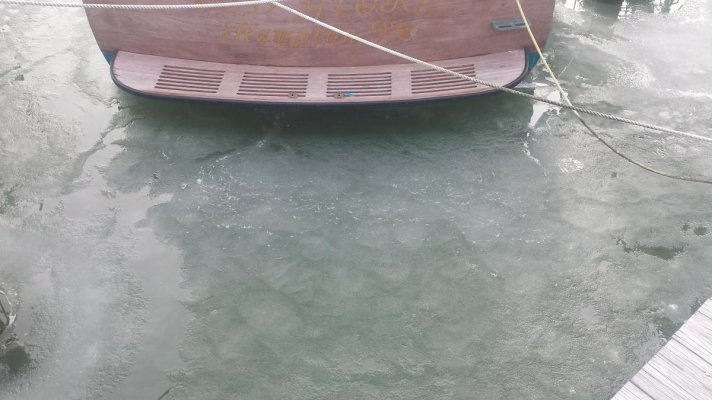sdowney717
Guru
- Joined
- Jan 26, 2016
- Messages
- 2,264
- Location
- United States
- Vessel Name
- Old Glory
- Vessel Make
- 1970 Egg Harbor 37 extended salon model
And I have loads of ice in the bilge still.
Some bilge pumps locked in the ice, so non functional.
I did not go there till the 6 inches of snow melted off the docks.
This is Chisman Creek in Seaford VA. Ice extends almost all the way across the creek. creek is tidal water, slightly salty, it still freezes anyway.
https://photos.app.goo.gl/srfMviIucG3uAmU82
It seems next week, more severe cold coming will get into the teens again at night. I have 2 separate bilge compartments on the boat, and the rear one is locked in ice. The forward one still has some free water mixed with ice, and one rule 3700 above the bilge water for emergency use. I really should have dried out the bilge before we got this last storm.
Some bilge pumps locked in the ice, so non functional.
I did not go there till the 6 inches of snow melted off the docks.
This is Chisman Creek in Seaford VA. Ice extends almost all the way across the creek. creek is tidal water, slightly salty, it still freezes anyway.
https://photos.app.goo.gl/srfMviIucG3uAmU82
It seems next week, more severe cold coming will get into the teens again at night. I have 2 separate bilge compartments on the boat, and the rear one is locked in ice. The forward one still has some free water mixed with ice, and one rule 3700 above the bilge water for emergency use. I really should have dried out the bilge before we got this last storm.
Attachments
Last edited:




